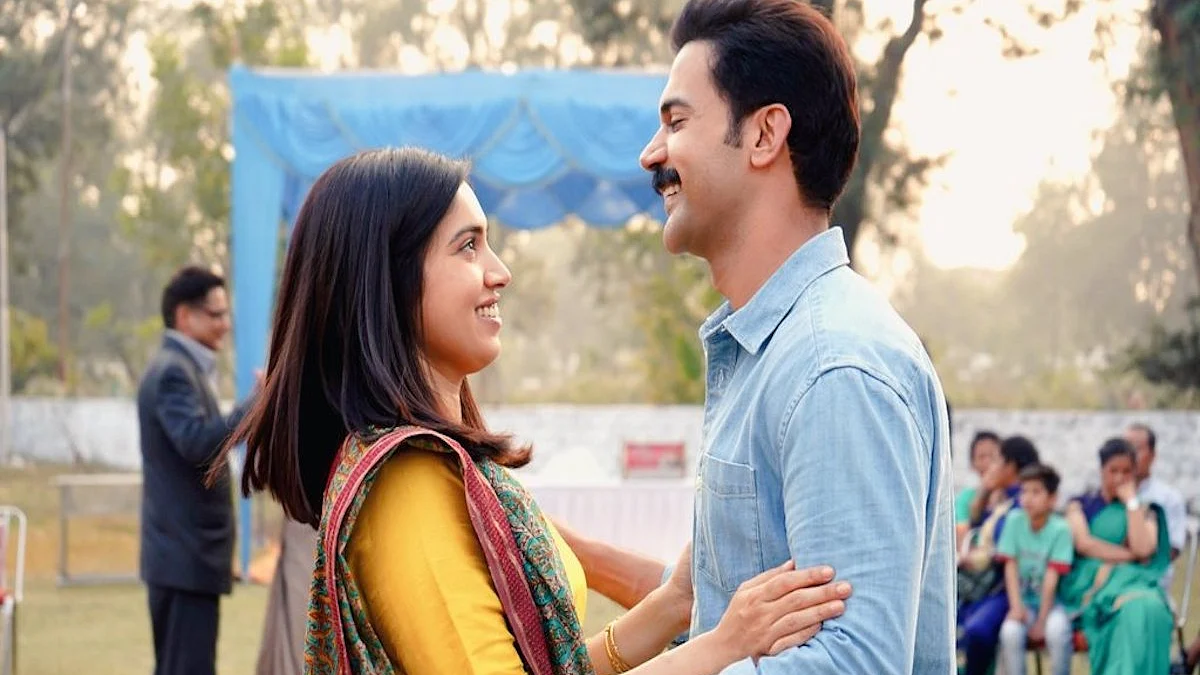'Badhaai Do' review: Not quite a big, fat Indian wedding
'Badhaai Do' is a film that works through deception; not in bad way at that. Its promos promise it to be in line of the “big North Indian family” genre that has been making big strides in Bollywood

Badhaai Do is a film that works through deception; and not in a bad way at that. Its promos promise it to be in the line of the “big North Indian family” genre that has been making big strides in Bollywood in the last eight years or so. Some would even argue that the formula has now been stretched beyond limits. Films modeled on Dum Laga Ke Haisha, Shubha Mangal Savdhaan, Bareilly Ki Barfi and Badhaai Do’s own predecessor Badhaai Ho.
All of them have much in common—a small town for the setting, populated with quirky characters, replete with local lingo and rustic, rooted humour and the preoccupation of the family members in poking their noses in private affairs—be it love or marriage, sex or procreation—of the young lead.
Something similar appears to play out in Harshvardhan Kulkarni’s Badhaai Do, a rare film that dares to start with a big yawn, followed by many cups of tea and an early morning “mantrana” (consultation) in Shardul Thakur’s (Rajkummar Rao) extended family in Haldwani about his much-desired wedding which doesn’t appear to be happening despite all their joint efforts. He is happy being the male cop in the mahila thana (women’s only cop station) of Dehradun, curiously oblivious of the opposite sex—“Gopiyon ke beech Bhishma Pitamah”, as his colleague calls him.
But the similarities stop at that. Badhaai Do doesn’t quite harness or exploit humour to communicate its raison de etre. In fact, it’s not about chortling or chuckling at every turn of the plot. The standard sparkling scenes or crackling lines are very few and far between. The one I do remember is about the assertion that sex for procreation can’t be called sex. It should be referred to as dayitva (responsibility) towards the family. Consummate actors like Seema Bhargava, Sheeba Chaddha and Loveleen Mishra merge in the background than stand out. Badhaai Do is a relatively mild and subdued member of an otherwise overly rumbunctious genre.
What it does do within the confines of family film is push the envelope of gay representation a few notches further and that too more assuredly.
I found one aspect particularly noteworthy—the two grandiose, puffed-up zones that the film is located in. First, quite obviously, is the righteous happy family itself. It situates the discrimination against the queer community (as the film puts it, seeing someone “different” as a “pervert”) within an ordinary family that is anyhow already riddled with prejudices of caste, religion and gender. Such is the desperation of the Thakur family members to have Shardul married that they are willing to bring his colleague Nazneen home as his wife. It is not a characteristic of theirs that is validated, celebrated or used for laughs but soberly and cleverly underlines the even worse ways that Shardul’s samlaingik (same sex) relationship would be perceived and treated in such an environment of normalized bigotry.
On the other hand, with Suman “Sumi” Singh (Bhumi Pednekar) it’s all about living up to the feminine ideal—being fair, wearing certain kind of clothes and giving the family precedence over career after being married.
Shardul and Sumi decide to take on this conservative structure by playing the game as per its own hypocritical rules and subverting it from within. They decide to get into a marriage of convenience and live as roommates, pretending to be a happy couple to the world, while carrying on with their own queer relationships on the sly. Relationships which are relatable and charming in the light, off-the-cuff way they follow all the tender protocols of romance.
The convenient arrangement, eventually, also helps them get past the inconclusive rules and lack of conduciveness when it comes to adoption of children in India by gay couples
The other front where the subversion plays out is in the uniformed world of the cops, in the midst of the keepers of the supposedly masculine ideals, their thanas and police colonies.
Society’s predatory ways are laid bare. From the absurdity of a cop’s triumph “homo pakde hain” in a gross crackdown on lovers to the impunity of stalking and threatening the vulnerable. In this hypocritical world, even Shardul and Sumi are not above being flawed and carry their own little chauvinistic streaks—be they to do with age or gender.
Despite these refreshing fallibilities and complexities, all the ends tie up as easily and neatly as possible in a dragged-out but finale. The conservative family changes and accepts the two as easily as the cops take charge of the pride parade. There is a surprise fun casting—the lawyer lover of Shardul—but the show belongs to Bhumi and Rajkummar. Bhumi, and her character Sumi, are both easygoing about themselves and well sorted.
Rajkummar, on the other hand, has a more complicated Shardul to deal with and he brings out the contradictions in him quite well, especially in two monologues. One drunken talk about being a “homocop” in the world of “robocop”, being scared of the police himself but joining the force because no one wants to give up on a government job, just like no one wants to let go of a seat in the public transport. Then there’s a speech to the family towards the end, about being lonely within a loving fold, about not being able to tell one’s own truth and asserting one’s own true identity. Being gay is all about being human, he says. Hear, hear!
Follow us on: Facebook, Twitter, Google News, Instagram
Join our official telegram channel (@nationalherald) and stay updated with the latest headlines
Published: 11 Feb 2022, 5:15 PM